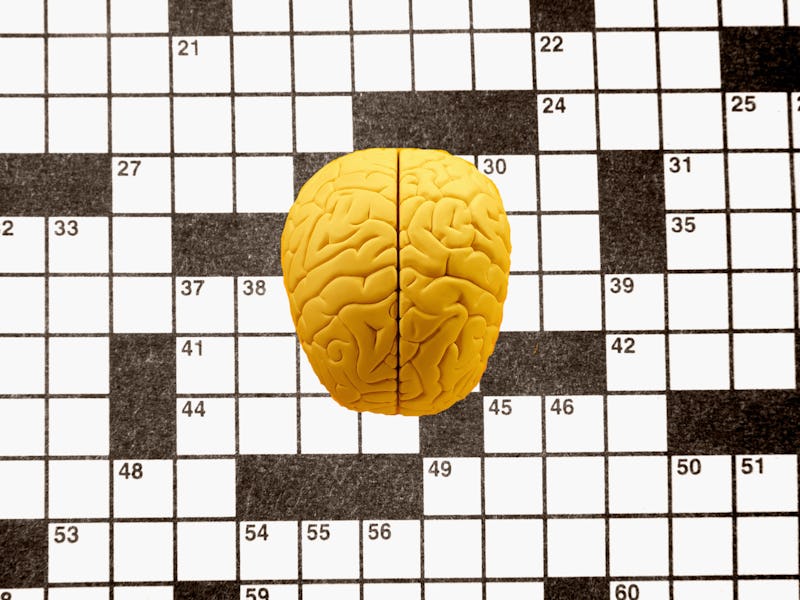Studies: One daily habit may help your brain beat the effects of aging
You can't stop the passage of time, but you can do lots of crosswords.

Nothing can be done to stop the passage of time and the inevitable toll it takes on the body. But you can help to preserve your memory’s power by spending some time each day doing crossword or number-based puzzles.
Two studies — one published in November 2018 and another in February 2019 — show that making puzzle solving a daily habit can keep the memory sharp.
Inverse is counting down the 25 biggest stories of human potential of 2019. This is #9.
Anne Corbett, a senior lecturer at the University of Exeter, worked on both studies. Her team used data from PROTECT, an United Kingdom-wide study on aging brains.
The massive dataset included nearly 20,000 participants, aged between 50 and 93 years. The researchers found that people who did puzzles like Sudoku or crosswords scored far better on measures of 14 cognitive skills than those who didn’t.
Corbett told Inverse at the time that the results could help people find ways to preserve their brain power.
“We hope this will encourage people to consider how they challenge their brain on a regular basis, and perhaps consider taking up puzzles or evidence-based brain training games as part of a lifestyle approach to keep their brains healthy,” she said.
The most obvious differences between the puzzle-doers and those who didn’t do any puzzles were in the scores on grammatical reasoning tests, pattern recognition tests, and attentional intensity indexes.
More frequent puzzlers had better long-term memory and could more easily recall emotions and context, not just facts. They also excelled at spatial working memory tests — tasks like remembering details about the physical environment in which something occurred — and had better attention, processing speed, and executive function.
While taking a moment every day to pick up a puzzle and challenge your brain is ideal, doing something on occasion is better than nothing, too. The performance of those who never did puzzles was “significantly inferior” to those who did puzzles at all, the researchers found.
As 2019 draws to a close, Inverse is revisiting 25 striking lessons for humans to help maximize our potential. This is #9. Some are awe-inspiring, some offer practical tips, and some give a glimpse of the future. Read the original article here.